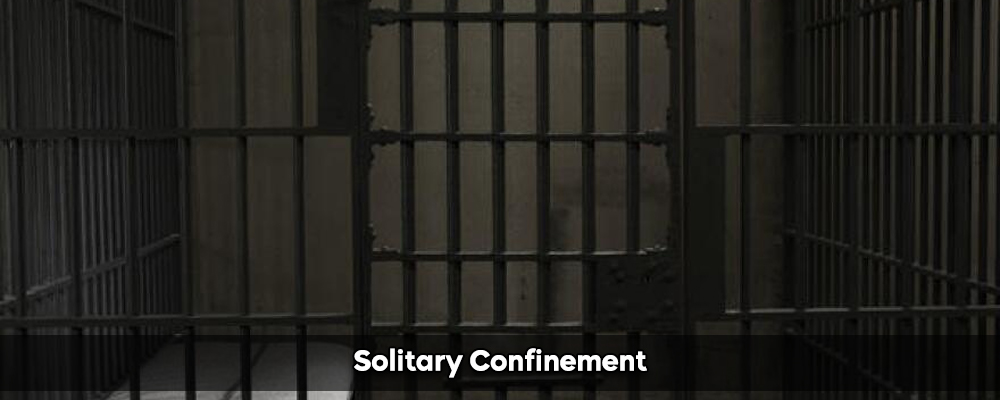Over the last 60 years, as ideas about the practice have evolved, the legality of solitary confinement has been often contested. The legal debate over whether or not solitary confinement is torture or a cruel and unusual punishment that might impair brain function has dominated most of the debate. Even though organizations and health care professionals agree that solitary confinement is unethical, the separating practice continues.
Need A Legal Advice
The internet is not a lawyer and neither are you. Talk to a real lawyer about your legal issue

Legal provision
Section 73 states that anytime a person is found guilty of an offense for which the court has the authority to sentence him to rigorous imprisonment under this code, the court may, by sentence, order that the offender be kept in solitary confinement for any portion or portions of the imprisonment to which he is sentenced, not to exceed three months in total, according to the following scale, that is to say:
- If the sentence is less than or equal to six months, no longer than one month;
- If the sentence is more than six months but [not more than] a year, no longer than two months;
- If the sentence is more than a year in jail, no longer than three months.
No cell shall be used for solitary confinement unless it is furnished with means of enabling the prisoner to communicate at any time with an officer of the prison, and Every prisoner who is imprisoned in a cell for more than 24 hours, whether as a punishment or otherwise, must have the Medical Officer visit them at least once every day or Medical Subordinate,” states Section 29 of The Prisons Act, 1894.
When it is permissible to use solitary confinement
Prison can be for one of two reasons:
- Rigorous punishment: A guilty prisoner who has been sentenced to solitary confinement may also be forced to endure hard labor for a small salary. Only when the accused has committed a horrible crime with violence can harsh punishment be inflicted.
- Simple punishment: It entails fewer infractions and simple incarceration. Only serious offenses, not minor infractions may result in solitary incarceration. An individual who has been charged with a crime and is found guilty is detained behind bars without having to perform any hard labor.
Limit of Solitary Confinement
Solitary confinement is only permitted for a maximum of three months and no more than 14 days at a time throughout any given term. It must be given out in times and intervals. Solitary confinement shall not be longer than 7 days in a month if the sentence is longer than three months. If the overall length of the sentence is less than six months, the period of solitary confinement is one month. Solitary confinement for two months may be ordered if the sentence is more than six months but not more than a year. Solitary confinement shouldn’t be more than three months if the sentence is longer than a year.
Case Law
In the case of Bishal Das & Ors. vs. The State of West Bengal & Ors, The Calcutta High Court recently denied the Chinsurah District Correctional Home request regarding a transfer petition. Petitioners claimed that several human rights had been violated as a result of their detention, including solitary confinement, a lack of medical care, and the denial of their right to visit by family members and activists, among other things.
The Bench took notice of the petitioner’s response to the State’s report during the hearing and determined that, even though the petitioner’s confinement could not be considered to be solitary confinement, the jail authorities would still be required to give them access to the necessary medical facilities while they were being held. The jail staff must also be given some leeway since if the prisoner’s feeling of oppression were the only factor considered, there would be a bias associated with it. Therefore, the court cannot be too sensitive to the point that it ignores the actual world circumstances.
The Court instructed the authorities to make sure that the medical and visitation facilities requested by the petitioners were available to them during their incarceration after noting that their detention would not amount to solitary confinement due to the perceived threat against them by jail authorities.
Lead India offers online information, free legal advice, and guidance with the law. The best thing to do in this circumstance is to talk to a lawyer and ask a legal question.




 Talk to a Lawyer
Talk to a Lawyer